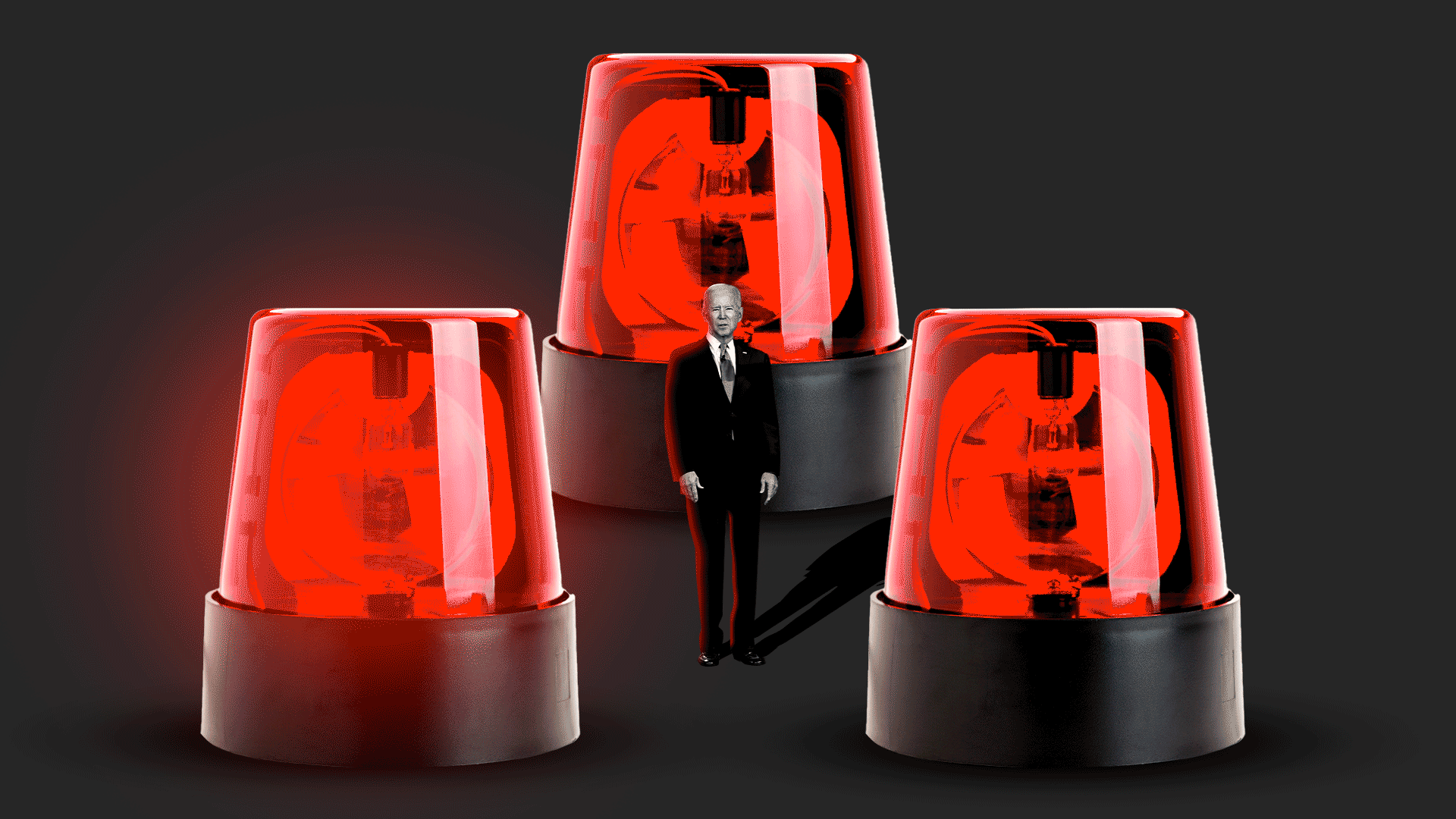Dave Lawler

Russia is menacing Ukraine’s borders, China is sending increasingly ominous signals over Taiwan and Iran is accelerating its uranium enrichment to unprecedented levels.
The big picture: Ukraine, Taiwan and Iran’s nuclear program always loomed large on the menu of potential crises President Biden could face. But over the last several days, the lights have been blinking red on all three fronts all at once.
Driving the news: Within 24 hours beginning last Sunday, an explosion rocked Iran’s underground nuclear site at Natanz, 25 Chinese warplanes entered Taiwan’s air defense zone, and Ukraine announced that the number of Russian troops massing in Crimea and on its eastern border had risen to 80,000.
Russia has now assembled enough troops for a “limited military incursion,” CIA director Bill Burns warned Wednesday.
Moscow has avoided such overt intervention in Eastern Ukraine since the war there began in 2014, but could strike now in an attempt to push further into Ukrainian territory or secure a source of much-needed water for occupied Crimea.
After a flurry of phone calls from Washington to Kyiv to signal support for Ukraine, Biden called Vladimir Putin on Tuesday and proposed a summit to discuss Ukraine and other issues.
The state of play: U.S. European Command commander Gen. Tod Wolters said Thursday that there was a “low to medium” risk of a Russian invasion in the next few weeks.
The threat of a Chinese invasion of Taiwan is less urgent, but carries a far greater risk of plunging the U.S. into a direct military confrontation.
Beijing has repeatedly threatened to take control of the self-governing island by force. Biden, meanwhile, has continued the longstanding policy of “strategic ambiguity,” with the U.S. signaling that it’s prepared to defend Taiwan without explicitly pledging to do so.
After Monday’s air incursion, the largest to date, Biden dispatched three former senior U.S. officials to Taiwan, a move Beijing described as “playing with fire.” China reacts furiously to any gesture that treats Taiwan — a flourishing democracy and global tech hub — as an independent country.
The state of play: Admiral Philip Davidson, the commander of U.S. Indo-Pacific Command, has said there’s a real and rising risk that China will invade in the next several years, but that the more worrying short-term scenario is an “accident or a miscalculation” that leads to escalation.
After the apparent act of Israeli sabotage at Natanz, Iran announced it would begin enriching uranium to 60%, approaching the levels required for a nuclear weapon.
Both the attack and the Iranian response have threatened to derail the negotiations aimed at salvaging the 2015 nuclear deal.
The state of play: The talks resumed on Thursday in Vienna, but back in Tehran Supreme Leader Ali Khamenei implied that Iran might soon walk away from the table. If the talks falter and Iran continues to accelerate its enrichment, further flash points are likely.
What to watch: Just about all that’s missing from this cocktail of crises is another North Korean missile test.
No comments:
Post a Comment